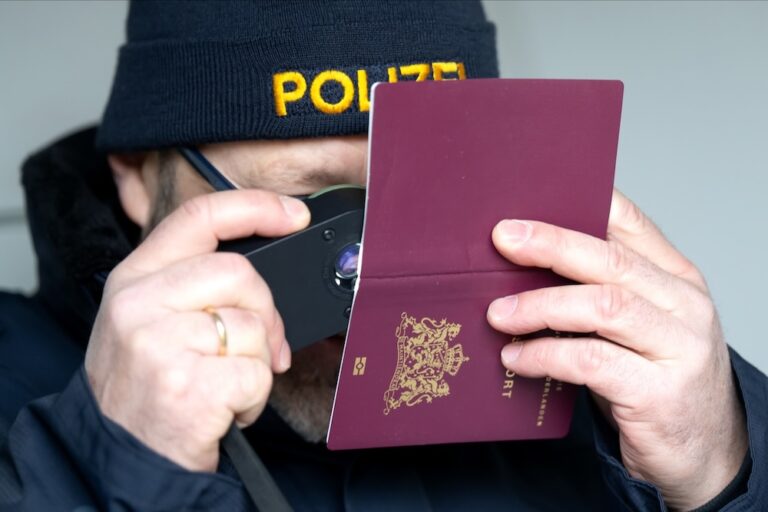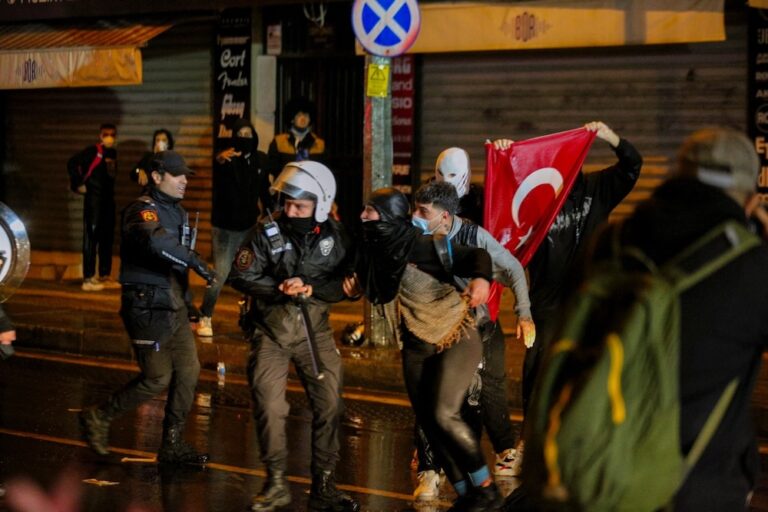Can Europeans be sentenced to jail for vague references to terrorism? It already happened. And it is a trend that threatens to spread throughout Europe.
One of the most important functions of a democratic government is that of protecting our right to express ourselves freely by providing us with a sufficient level of security to enable us to enjoy that right without that right being unduly curtailed by those security measures. This freedom-security equation is one that political philosophers and lawyers have long tussled over. It’s also one that governments frequently get wrong. And they’re more likely to get it wrong when terrorism is inserted into the equation.
Particularly troublesome for free expression defenders is legislation that criminalises the broad, vaguely defined concept of “glorifying terrorism.” In 2016, Ben Emmerson, the UN Special Rapporteur on the promotion and protection of human rights and fundamental freedoms while countering terrorism, warned of the “troubling trend of criminalising the ‘glorification’ of terrorism.” Governments, he said, “must be careful in responding to the dangerous grey zone of expression where speech is not a direct call for action but prepares the ground for violent action.” Pointing to the potential threat to free expression, he noted that some states had exploited “these poorly defined concepts to suppress political opposition or ideological dissent.”
This issue made headlines around the world in January, when a Spanish court handed a rapper, Cesar Montaña Lehman (also known as Cesar Strawberry), a one-year prison sentence for “glorifying terrorism” and “humiliating its victims.” Lehman was convicted on the basis of a series of dark-humoured tweets that he sent in 2013-14. Among the tweets that were considered criminal were a declaration that he wanted to send the King of Spain a “cake-bomb” for his birthday, and a question: “How many more should follow the flight of Carrero Blanco?” (Carrero Blanco was a Franco-era Prime Minister who was blown up by ETA in 1973.)
Spain takes “glorifying terrorism” very seriously. Lehman was arrested in May 2015 as part of ‘Operation Spider’ (in which the police trawled social media in search of statements that could qualify as “glorifying terrorism”). Others have been convicted too. In 2015, there were 19 convictions for “glorifying terrorism;” in 2016, there were another 27. Currently, Cassandra Vera, a 21-year-old student who also tweeted dark jokes about Carrero Blanco is facing up to two-and-a-half years in jail for “humiliating the victims” of terrorism; in this case the victim’s own granddaughter has condemned the prosecution as “madness.”
These cases are prosecuted under Article 578 of the Spanish Legal Code, which provides for punishments of between one and three years in prison. In the United Kingdom, the 2006 Terrorism Act also criminalises “glorifying terrorism” using, what has been criticised as, “vague” language (such as “praising or celebrating”) to define the offence. But the UK legislation has a clause which says that the charge should only be applied when “members of the public could reasonably be expected to infer that what is being glorified is being glorified as conduct that should be emulated by them in existing circumstances.” U.K. law brings intention into play.
There is a very strong argument to be made that Lehman’s right to free expression, as guaranteed under Article 19 of the ICCPR, has been violated; and it is unlikely that any reasonable person would seriously argue that he was intentionally inciting terrorist acts. But the Spanish Penal Code makes no reference to intention when it comes to “glorifying terrorism” or the “humiliation of victims.” As the Supreme Court maintained in Lehman’s case, intention is “irrelevant.”
In 2008, the previous UN Special Rapporteur on the promotion and protection of human rights and fundamental freedoms while countering terrorism warned Spain of the imprecision of the word “glorification,” advising that a “vague term … must not be used to restrict expression, and that any criminalisation relating to the incitement to terrorism should include the requirements of an intent to incite the commission of a terrorist offence, as well as the existence of an actual risk that such an offence will be committed as a consequence.” Spain, obviously, did not follow his advice.
On the other side of the Pyrenees, France has similarly worrying legislation. “Apology for terrorism” has been a criminal offence there since November 2014. It is punishable with five years in jail and a fine of up to 75,000 Euros; however, if the offence is made online, the punishment is increased to seven years in jail and a fine of up to 100,000 Euros. Arrests and convictions on this charge spiked in the weeks following the terrorist attacks in January and November 2015 (in January, there were 298 prosecutions; in November and December, more than 800). Some of the convictions are very harsh: in May 2016, a 25-year-old man was handed a suspended sentence for scribbling “Vive Daesh” on a toilet wall. The most famous conviction was that of the French comedian, Dieudonné M’bala M’bala, who was handed a two-month suspended sentence in March 2015 for “condoning terrorism.” M’Bala (previously convicted on hate speech violations for making anti-Semitic jokes), was charged based on a Facebook post in which he said “I feel like Charlie Coulibaly.” M’Bala was playing with words, combining Charlie Hebdo with Amedy Coulibaly (Coulibaly took part in several shootings at the same time as the Charlie Hebdo killings).
Worryingly, “glorifying terrorism” looks set to become a criminal offence across the EU in early 2017. In November 2016, EU Parliament and Council negotiators agreed on the final version of a Directive on Combating Terrorism. The text of the Directive states that activities such as the “glorification of terrorist acts,” when they “directly or indirectly … advocate the commission of terrorist offences,” are punishable as a criminal offence. It also states that “such behaviour should be punishable when it causes a danger that terrorist acts may be committed” (all italics mine). Rights groups have criticised the overly broad language of the text that could criminalise expression that is merely foolish or obnoxious (as in the cases of Lehman, Vera and M’Bala) and which leaves the door alarmingly open for governments that might want to curtail speech and protest rights.
The Directive does, however, give a weak nod to intention and context:
“In each concrete case, when considering whether such danger is caused, the specific circumstances of the case should be taken into account, such as the author and the addressee of the message, as well as the context in which the act is committed. The significance and the credible nature of the danger should be also considered when applying this provision in accordance with national legislation.”
Human rights organisations have criticised the legislative process driving this project for its haste and lack of proper consultation of civil society; the Directive was backed by the EU Civil Liberties Committee in December 2016 and is expected to be voted on in Plenary in February 2017. EU member states will then have 18 months to ensure that its provisions can be applied. “The U.K. and Ireland will not be bound by the Directive,” says a press release, “but may notify the EU Commission of their intention to opt-in, if they so wish. Denmark will not be covered by the Directive.”



